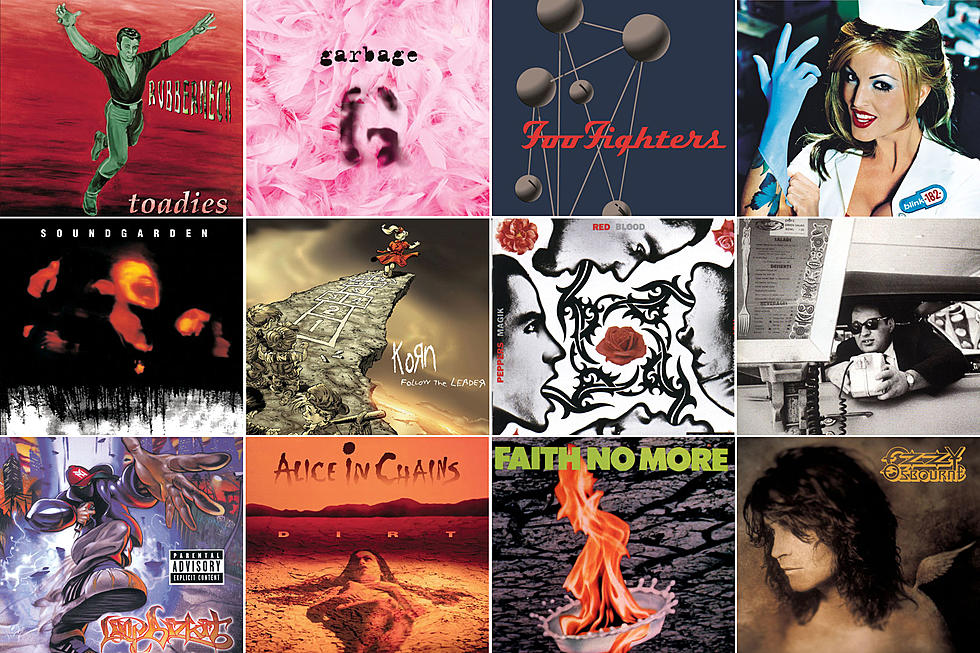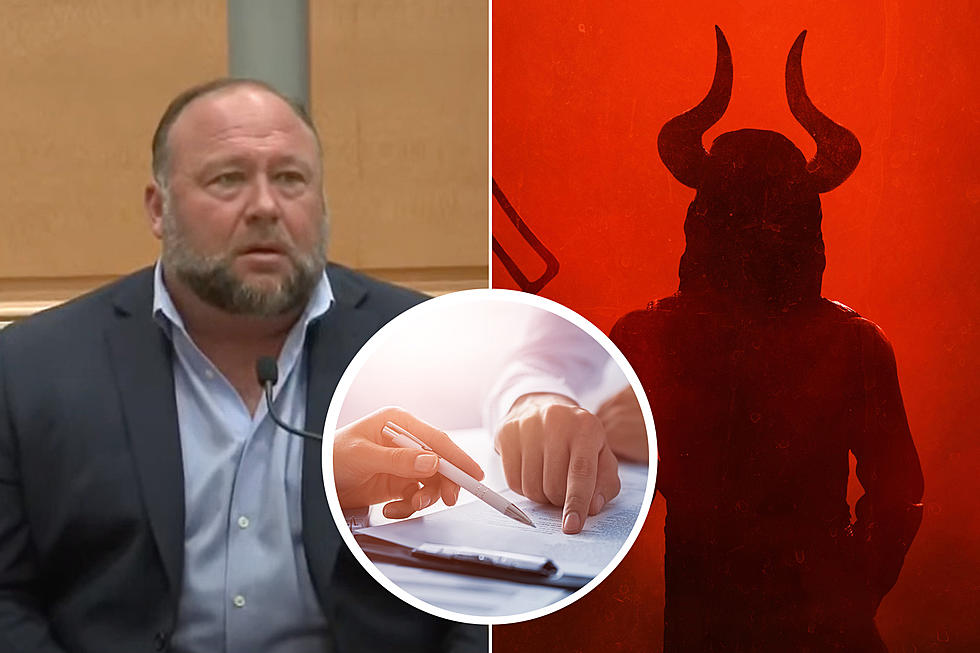
Why R.E.M. Wanted to End on a High Note
After more than three decades as a band, 15 albums and more than 90 million copies of those records sold, R.E.M. announced their breakup on Sept. 21, 2011.
In a statement posted to its website, the band noted that the decision left its members feeling "a great sense of gratitude, of finality and of astonishment at all we have accomplished."
Fans may have been surprised by the news because singer Michael Stipe was telling everyone that the band was together in Athens, Ga., and recording the follow-up to 2011's Collapse Into Now. But when Collapse was released, bassist Mike Mills told The Wall Street Journal they weren't touring behind this album because "this just didn't feel like the right time to do it. ... It's hard to be more specific than that."
There was no great falling out, no grudges held; instead, the band members said in statements that they took stock of R.E.M.'s catalog and came to the mutual decision that they wanted to go out on a creative high. And now was the time.
One could argue that R.E.M. were due for a breakup in 1997, after cofounding drummer Bill Berry left. (He had suffered an aneurysm onstage in Switzerland two years earlier.) R.E.M. always said they'd break up if any of the four original members left the band, but they had a five-album deal with Warner Bros. Records said to be worth $80 million - the largest record contract signed up to that point, according to the Los Angeles Times. But Berry told the group to continue without him. He left on the first day of rehearsals for 1998's Up, and his parts were mostly played on drum machines.
That may have been a good time for R.E.M. to disband. Their post-Berry albums, especially 2004's Around the Sun, weren't met with the same critical reverence as their earlier records, and their chart dominance was also beginning to wane. In the 2011 Wall Street Journal interview, Mills revealed that the band wasn't renegotiating with Warner Bros., or any label for that matter, to release more albums. They seemed to have no plans other than to maybe write some songs and record them.
The statements made in September 2011 were bland and broad, offering little insight. But a 2016 Rolling Stone interview with guitarist Peter Buck revealed some details. He said when they decided to break up, he made a five-page list of things he hated about the music industry. "It was the money, the politics, having to meet new people 24 hours a day, not being in charge of my own decisions," he noted. The conversations started during R.E.M.'s 2008 tour in support of Accelerate. They already knew it could be their last tour, but they weren't necessarily thinking of it as their final album.
That talk came up when they were making Collapse Into Now. Stipe told the Daily Beast in 2011, "We were coming out of a perceived low period into an upswing, and it felt really good. We did a tour and it felt great. That's when we started talking about the option to not continue recording or performing." Mills said in the same interview that they discussed a hiatus vs. a breakup but opted to have a clean break so the band wouldn't eclipse any solo projects or new ventures. And there definitely would be no reunion tours.
Ten years later, they've stuck to the promise: no reunion shows, no itch to record together. They've issued anniversary editions of New Adventures in Hi-Fi, Monster, Automatic for the People and Green. They've released a DVD box set collecting various footage culled from MTV's archives. They put out an album of their BBC performances. And soon after they announced their breakup, they released a career-spanning compilation called Part Lies, Part Heart, Part Truth, Part Garbage: 1982-2011. The nostalgia R.E.M. eschewed when they were together was given acceptable outlets once they were no longer a band.
By all accounts, the split was amicable, and the members are still close. "As friends, they'll be in my life forever," Stipe told The New Yorker in 2021. "There's nothing any of them could ever do that would change that. And I know that that's reciprocal. But, no, we did the right thing. We needed to not drive it into mundaneness, and that's where it was going to go, I think. Everything has a life, and, at some point, it ends."
Top 100 '90s Rock Albums
More From WPDH-WPDA










